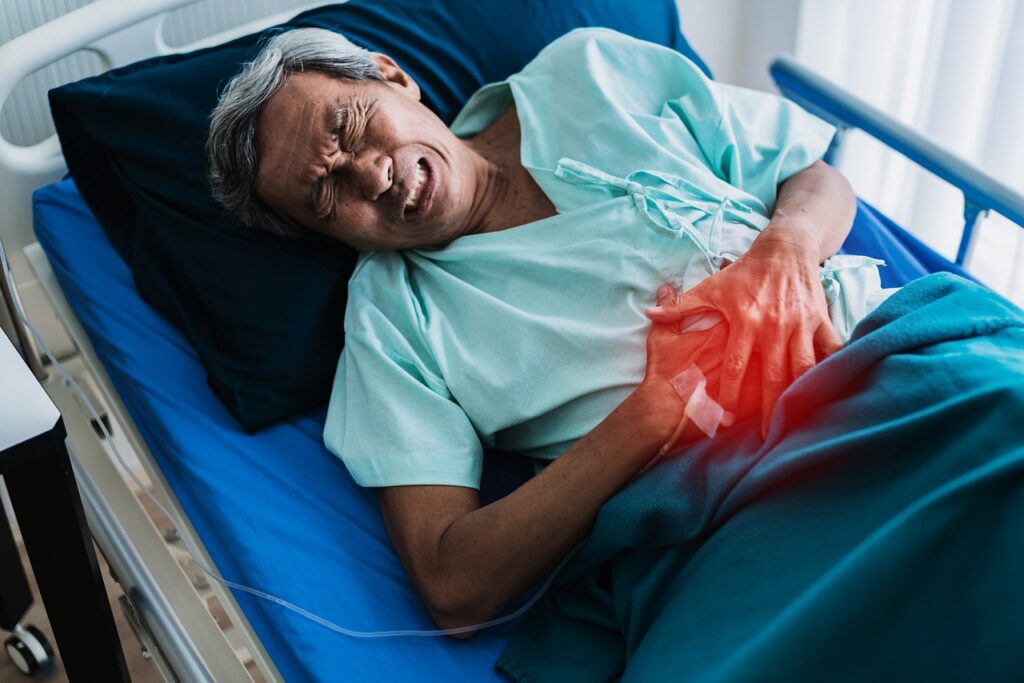
What is the natural Remedy for Heart Palpitations? Heart palpitations feel like your heart is beating too hard or fast, skipping a beat, or fluttering. They can be scary, but they usually aren’t dangerous or caused by a serious condition.
You can help them go away by cutting out triggers (like caffeine, alcohol, or cold medications) and practicing stress-reducing techniques. You can also take supplements and add heart-healthy foods to your diet. There is some great natural remedy for heart palpitations that you can try.
Exercise to reduce the intensity of heart palpitations
If you have a regular exercise routine, it will help reduce the intensity of your heart palpitations. You can also increase the amount of vegetables and fruits you consume in a day. Taking saffron (Crocus sativus) is another natural remedy for heart palpitations. You can use saffron in your cooking or make a saffron tea by soaking it for 10 minutes and drinking it.
Garlic (Allium sativum) contains allicin, which has cardioprotective properties. You can add garlic to your diet by consuming it as a spice or in its supplement form after consulting your doctor.
You can also drink a mixture of lemon juice and honey to get rid of heart palpitations. This will relax your heart and make it go back to its standard rhythm pattern.
Practicing deep breathing can also reduce the severity of heart palpitations by making your heart undergo a normal pace. You can practice this by sitting up straight and closing your eyes while inhaling deeply for about three seconds. Do this for a few times every day.
How do I stop heart palpitations when lying down?
Heart palpitations feel like a fluttering or beating feeling in your chest. They might make you think your heart is skipping beats, beating too fast or racing, or pounding. This is a sensation of the result of an irregular heartbeat (arrhythmia).
You might notice this when you lie down or exercise, but it also happens when you are anxious, stressed, or nervous. It can be more noticeable at night because there are fewer distractions, especially in a quiet environment like your bed.
Generally, heart palpitations at night are harmless. It’s a sign that you need to relax more, get some sleep and try to reduce your stress levels. You should also try to stop the stimulants that are causing them, such as caffeine, alcohol, nicotine, and other recreational drugs.
If they persist, you should see your doctor, says Dr Jessup. You should also seek medical attention if you are having difficulty breathing or fainting (syncope).
Sometimes, the symptoms might be a sign of more serious problems. These include sinus tachycardia, premature ventricular contractions or atrial fibrillation. These require testing, usually a heart monitor, to diagnose and treat the said problem.
You might need medication or a procedure to control the arrhythmia. If you have a history of heart disease, or have family members with heart problems, you might need to consult with a specialist. Having a regular checkup is a good idea, especially if you have a history of heart palpitations.
Best sleeping position for heart palpitations
Heart palpitations, or the sensation of a racing heartbeat, can occur at any time but are particularly bothersome when trying to sleep. Fortunately, there are some sleeping positions that can help alleviate these symptoms.
Sleeping on your back is generally the best position for heart palpitations. This is because it allows your body to rest in a neutral position, which can help reduce pressure on your heart and promote healthy blood flow. Additionally, sleeping on your back can help reduce the risk of acid reflux, which can also trigger heart palpitations.
If you prefer to sleep on your side, try sleeping on your left side. This can help reduce the pressure on your heart and improve blood flow throughout your body. By contrast, sleeping on your right side can increase the pressure on your heart and worsen heart palpitations.
Avoid sleeping on your stomach if you experience heart palpitations. This position can put unnecessary pressure on your heart and make it harder for you to breathe. Additionally, sleeping on your stomach can increase the risk of acid reflux, which can also trigger heart palpitations.
In addition to sleeping position, there are other lifestyle changes you can make to help reduce heart palpitations at night. For example, avoiding caffeine and alcohol before bedtime can help reduce the risk of heart palpitations.
Additionally, practicing relaxation techniques like deep breathing or meditation can help reduce stress and anxiety, which can also trigger heart palpitations.
If you experience heart palpitations frequently or they are accompanied by other symptoms like chest pain or shortness of breath, it is important to talk to your doctor. They can help diagnose the underlying cause of your symptoms and recommend appropriate treatment options.
In summary, the best sleeping position for heart palpitations is on your back or left side. Avoid sleeping on your stomach and make other lifestyle changes like avoiding caffeine and practicing relaxation techniques to help reduce the risk of heart palpitations at night. If you experience frequent or severe heart palpitations, talk to your doctor for proper diagnosis and treatment.

Foods to avoid if you have heart palpitations
Heart palpitations are a common symptom from a variety of factors, including stress, anxiety, and certain medical conditions. However, did you know that certain foods can also trigger heart palpitations? If you experience heart palpitations, be aware and avoid the foods causing them to prevent further episodes.
One of the biggest food-related causes of heart palpitations is caffeine. Caffeine is a stimulant that can speed up your nervous system, and is in coffee, some teas, and some sodas. It is also widespread in some foods, like chocolate. If you experience heart palpitations, it is best to avoid caffeine altogether.
Another food that can cause heart palpitations is alcohol. Alcohol is a depressant that can slow down your heart rate, but it can also cause it to beat irregularly. If you experience heart palpitations, it is best to avoid alcohol or limit your intake.
Spicy foods can also trigger heart palpitations. Spices like cayenne pepper and chili powder can cause your heart rate to increase and lead to palpitations. If you experience heart palpitations, it is best to avoid spicy foods or limit your intake.
Fatty and fried foods can also cause heart palpitations. These foods can cause your body to release a hormone called cholecystokinin, which increase heart rate and lead to palpitations. If you experience heart palpitations, it is best to avoid fatty and fried foods or limit your intake.
Processed foods and foods high in sugar can also trigger heart palpitations. These foods can cause your blood sugar levels to spike and lead to palpitations. If you experience heart palpitations avoid processed foods and foods high in sugar or limit your intake.
It is important to be aware of the foods that can cause them and avoid them to prevent further episodes. Caffeine, alcohol, spicy foods, fatty and fried foods, processed foods, and foods high in sugar can trigger heart palpitations.
By avoiding these foods or limiting your intake, you can help to reduce your risk of experiencing heart palpitations. Remember to always consult with your healthcare provider if you experience heart palpitations or have any concerns about your heart health.
What vitamins stop heart palpitations?
Heart palpitations are a common condition that can cause a fluttering, pounding, or racing sensation in the chest. They can be caused by a variety of factors, including stress, anxiety, caffeine, nicotine, and certain medications.
While there are several vitamins that are believed to help reduce the frequency and severity of heart palpitations, it is important to note that not all vitamins are created equal and that more research is needed to confirm their effectiveness.
One of the most commonly recommended vitamins for heart palpitations is magnesium. Magnesium is an essential mineral that plays a key role in regulating the heart’s rhythm and can help reduce the frequency and severity of palpitations.
According to a study published in the Journal of the American College of Cardiology, magnesium supplementation can help reduce the frequency and severity of heart palpitations in patients with frequent episodes.
Another vitamin that is believed to help reduce heart palpitations is vitamin B12. Vitamin B12 is essential for the proper functioning of the nervous system and can help reduce stress and anxiety, which are common triggers for palpitations.
According to a study published in the Journal of Cardiovascular Disease Research, vitamin B12 supplementation can help reduce the frequency and severity of palpitations in patients with coronary artery disease.
In addition to magnesium and vitamin B12, other vitamins that are believed to help reduce heart palpitations include vitamin D, vitamin C, and vitamin E. Vitamin D is essential for the proper absorption of calcium, which is needed for proper heart function, while vitamin C is a powerful antioxidant that can help reduce inflammation and oxidative stress, both of which can contribute to heart palpitations.
Vitamin E is also a powerful antioxidant that can help reduce inflammation and improve blood flow, which can help reduce the frequency and severity of palpitations.
It is important to note that while vitamins can be beneficial for reducing heart palpitations, they should not be used as a substitute for medical treatment. If you experience frequent or severe palpitations, it is important to see a doctor to rule out any underlying medical conditions and to develop a treatment plan that is tailored to your specific needs.
While there are several vitamins that are believed to help reduce heart palpitations, more research is needed to confirm their effectiveness. Magnesium, vitamin B12, vitamin D, vitamin C, and vitamin E are all vitamins that are believed to be beneficial for reducing palpitations, but they should not be used as a substitute for medical treatment. If you experience frequent or severe palpitations, it is important that you seek medical attention.
